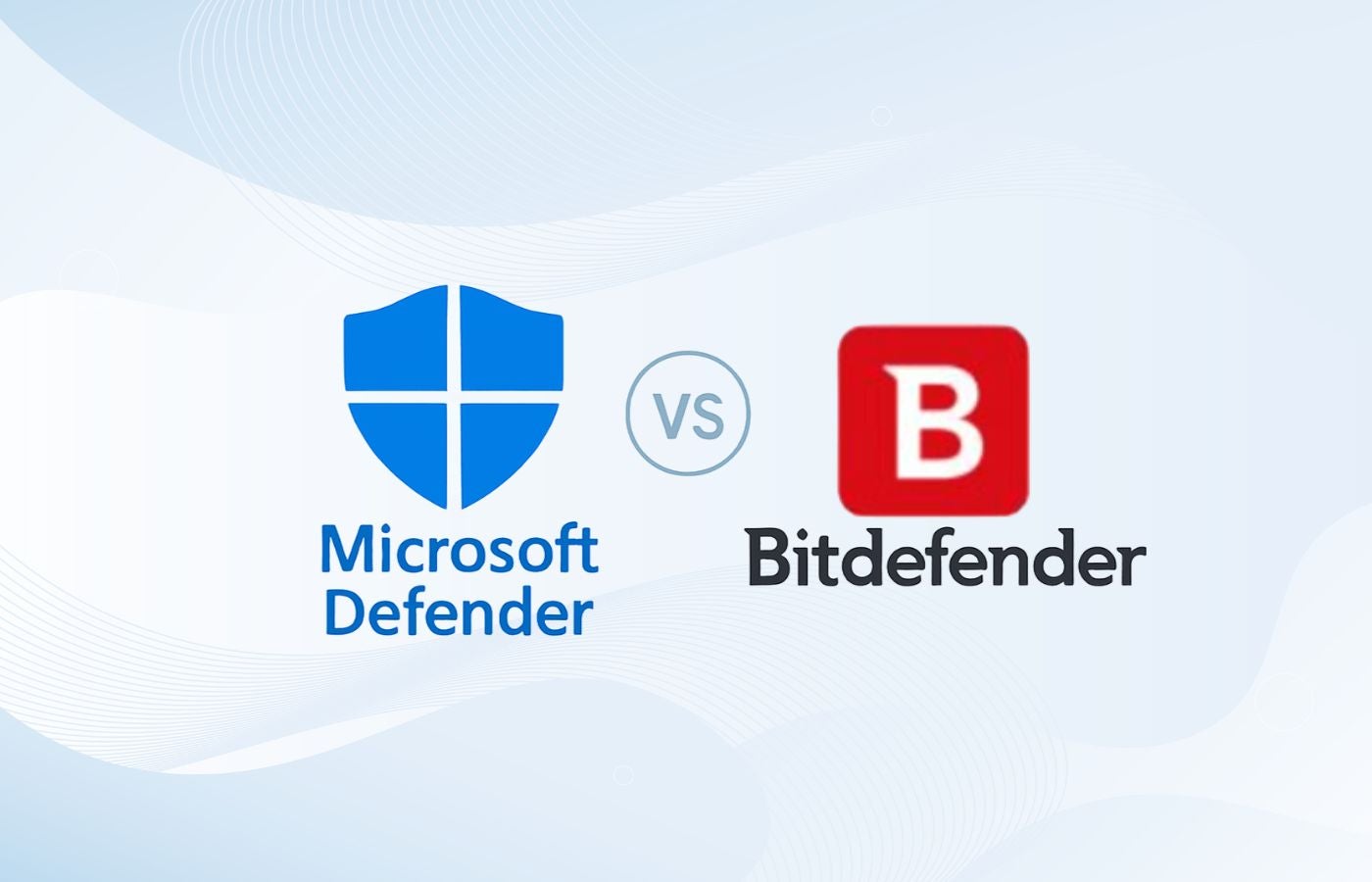Cybersecurity startups are innovative, agile businesses that advance cloud security, network security, threat detection, and other fields of cybersecurity. These companies impact major industries such as endpoint security, compliance, and DevSecOps, demonstrating their potential for substantial growth and influence in the industry. Here, we’ll highlight the top startups, identifying their key solutions, features, funding, revenue, and potential for scaling.
Featured PartnersFeatured Partners: Cybersecurity Software
eSecurity Planet may receive a commission from merchants for referrals from this website
What Is the State of Cybersecurity Startups in 2024?
According to Crunchbase, cybersecurity firms have seen a significant jump in investment in 2024, with $4.4 billion spent in the second quarter alone, marking a 144% increase year over year. This funding surge demonstrates investor confidence in both established and emerging enterprises. This represents a shift from 2022 and 2023 when investments in cybersecurity startups dropped.
As organizations and individuals increasingly rely on complex cyberinfrastructure, the demand for robust cybersecurity solutions is growing. Despite the relative newness of the IT industry, cybersecurity remains a dynamic and expanding field with ample opportunities for emerging vendors. While many established technology giants continue to lead in cybersecurity, new startups are capturing attention by offering innovative solutions.
Most Popular Cybersecurity Startup Solutions
Based on our examination of data from platforms such as Crunchbase and Growjo, we’ve identified some of the top cybersecurity startups currently advancing in the industry:
- Application security: Secures software programs against threats and vulnerabilities.
- Cloud security: Safeguards cloud-based assets and data.
- Attack surface management: Detects and minimizes potential security vulnerabilities.
- Cyber asset management: Refers to the management and security of digital assets.
- Identity and access management: Manages user access and identity.
- Governance, risk, and compliance (GRC): Maintains regulatory compliance and risk management.
- Threat detection (EDR, XDR): Tracks and responds to threats via advanced tools.
- Digital forensics and incident response: Looks into and manages security incidents.
- Risk evaluation and assessment: Determines and assesses cybersecurity risks.
- Software development lifecycle (SDLC): Ensures the security of software development operations.
- Endpoint security and ransomware protection: Protects devices from ransomware threats.
Top Cybersecurity Startups Across Key Markets
Our list features companies formed within the last five years and those with high valuations, indicating that these are substantial, growing businesses. Many cybersecurity solutions overlap multiple categories; for example, extended detection and response (XDR) consolidates alerts from endpoints, networks, and applications into a single management console to provide complete security.
This table covers eleven of the top startups across different cybersecurity markets:
| Startup | Est. | Key Products & Features | Funding | Estimated Annual Revenue | No. of Staff | HQ | Round |
|---|---|---|---|---|---|---|---|
| Apiiro | 2019 | Application Security Risk Graph | N/A | $17.8M | 123 | Tel Aviv, Israel | B |
| Cado Security | 2020 | Forensic Cloud Security Service | N/A | $26.5M | 130 | London, UK | B |
| Cowbell | 2019 | Cyber Insurance | $23.6M | $39.7M | 284 | Pleasanton, CA | C |
| Cycode | 2019 | Application Security Posture Management (ASPM) | N/A | $27.3M | 134 | Tel Aviv, Israel | B |
| Cyera | 2021 | Data Security | $164M | $14.5M | 216 | New York, NY | C |
| Havoc Shield | 2019 | Information Security Platform | N/A | $1.3M | 17 | Chicago, IL | Seed |
| Hook Security | 2019 | Cybersecurity Training Platform | $7M | $2M | 27 | Greenville, SC | Seed |
| NordSecurity | 2019 | Streamlined VPN Service | $100M | $274.4M | 1445 | Netherlands | Private |
| Open Raven | 2019 | Cloud Native Data Discovery and Classification Software | $19.1M | $6M | 39 | Los Angeles, CA | B |
| Shift5 | 2019 | Operational Technology | N/A | $17.8M | 123 | Arlington, VA | B |
| Torq | 2020 | Automated Security Platform | N/A | $24.9M | 156 | Portland, OR | B |

Apiiro
Apiiro is a five-year-old startup that offers a cloud application security platform (CASP) that helps organizations secure their applications from design to production. The platform combines cloud security posture management (CSPM), application security posture management (ASPM), and application orchestration and correlation (ASOC) capabilities to provide a comprehensive view of application security risks.

Cado Security
Cado Security, founded in 2020, provides Varc, or volatile artificial collector, a forensic cloud investigation tool. Varc improves threat hunting by enabling detailed data searches and speedy rogue IP detection. Cado Security’s software offers incident response in cloud, container, and serverless settings, providing forensic-level details and allowing for quick threat response.

Cowbell
Cowbell is a dedicated cyber insurance company for SMEs that relies on continuous risk assessment, AI data analytics, and real-time underwriting to give clients pre- and post-breach services. The risk management startup offers visibility into exposures dubbed Cowbell Factors, giving clients opportunities for potential remediation and better coverage.
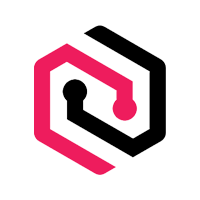
Cycode
Cycode helps businesses secure their software from the inside out by analyzing software code for security vulnerabilities, providing developers with the information they need to fix them early on in the development process. Their application security posture management (ASPM) platform features comprehensiveness and ease of use and goes beyond static analysis tools to include dynamic analysis and machine learning capabilities.

Cyera
Cyera is an AI-powered data security technology providing organizations rich data context to ensure cyber resilience and compliance. It offers a data-centric security platform to protect organizations’ sensitive data from unauthorized access, use, and disclosure. The platform uses machine learning and artificial intelligence to identify and classify data, creating and enforcing security policies.

Havoc Shield
Designed for small businesses, Havoc Shield offers clients a suite of cybersecurity tools to manage cybersecurity programs with confidence. Havoc Shield’s stack covers asset inventory, vulnerability management, endpoint protection, patch management, email security, cyber awareness training, and vendor risk management in a single bundle.

Hook Security
The eponymous Hook Security specializes in phishing testing and security awareness training to transform the workforce culture surrounding cybersecurity. Available as a managed service or self-managed solution, Hook Security’s solutions include a customizable phishing simulator, a learning management system, reporting, and a catalog of available awareness training content.

NordSecurity
Nord Security provides various products and services, such as NordLayer, NordVPN, NordPass, and NordLocker. The Netherlands-based company has carved out a niche for itself by offering a simplified VPN service that prioritizes customer privacy and security. NordSecurity was a well-known name before landing its first funding round in 2022, a $100 million investment that rocketed the company’s valuation past the $1 billion “unicorn” status.

Open Raven
Open Raven is a cloud-native data discovery and classification platform that helps organizations discover all data and resources in their cloud environment, classify data assets by identifying personal, sensitive, and regulated data, and monitor and protect data using policies and alerts. It utilizes techniques like pattern matching, machine learning, and data fingerprinting. The platform is designed to work at scale and can be used across multiple cloud providers.

Shift5
In the vendor’s own words: “We protect planes, trains, and tanks from cyber attacks.” Specializing in cybersecurity solutions for operational technology (OT), Shift5 offers protection for the world’s transportation infrastructure and weapons systems. Shift5 continuously monitors data intake from hardware and software to visualize critical insights, detect anomalies, and prevent intrusions.

Torq
Torq is a no-code security automation platform for building and integrating workflows between cybersecurity systems. With a long and impressive list of potential use cases, teams can utilize Torq to automate security workflows related to cloud security posture management, email phishing response, application security, data security, and more. For example, companies with existing EDR, XDR, and SIEM systems can automate threat-hunting workflows with Torq.
If you want to explore more established cybersecurity solutions, check out our guide of the top cybersecurity companies to see what these companies offer.
Top Cloud Security Startups
There’s a rising demand for new cloud security solutions that secure cloud environments and artificial intelligence. Our list below highlights startups that offer innovative key features and solutions for improving cloud security to meet the shifting customer needs.
| Startup | Est. | Key Products & Features | Funding | Estimated Annual Revenue | No. of Staff | HQ | Round |
|---|---|---|---|---|---|---|---|
| Grip Security | 2021 | SaaS Security Control Plane Shadow SaaS Discovery | N/A | N/A | 108 | Tel Aviv, Israel | B |
| Mitiga | 2019 | Cloud Security Data Lake Cloud Threat Hunting Emergency Cloud Incident Response | $14M | $17.7M | 87 | Tel Aviv, Israel | Unknown |
| Privafy | 2019 | CarrierEdge CloudEdge AppEdge | $22M | $13.1M | 90 | Boston, MA | Unknown |
| Strata Identity | 2019 | Identity Orchestration Identity Continuity | $42M | $15.9M | 78 | Boulder, CO | B |
| Valence Security | 2021 | SaaS Security Posture Management SaaS Risk Remediation | $32M | N/A | 53 | Tel Aviv, Israel | A |

Grip Security
Grip Security features a solution that beats traditional cloud access security brokers (CASB), providing clients with a complete SaaS inventory upon deployment for visibility, governance, and data security. Grip’s solution helps enhance and automate security policy enforcement across an organization’s cloud infrastructure, regardless of device or location.

Mitiga
To accelerate investigation, response, and time to recovery, Mitiga is the cloud incident response company offering emergency IR, ransomware readiness, and incident readiness and response. Mitiga’s IR experts can help clients proactively manage vulnerabilities and breaches from a central crisis management dashboard by capturing and processing cloud forensic data.

Privafy
Privafy aims to serve a valuable market corner — securing data in motion. As up to 80 percent of data breaches occur while data moves between cloud networks, Privafy offers security for cloud infrastructure and a list of edge computing solutions to securely deploy IoT devices and edge networks in the years to come.

Strata Identity
Strata Identity offers an identity orchestration solution, the Maverics Platform, which aims to solve enterprise organizations’ complex identity and access management (IAM) problems. Organizations can easily create and replicate app orchestrations by integrating identity systems across the modern infrastructure.

Valence Security
Valence Security focuses on the third-party integration risks presented by a universe of cloud applications for business workflows. With the rise of the SaaS to SaaS supply chain, as Valence calls it, organizations need visibility into application interactions. Through its platform, Valence brings workflows, permission scopes, API keys, and OAuth access tokens to light.
See how these companies compare with the top cloud security companies. Read our review to evaluate their features and offerings.
Top Threat Detection & Protection Startups
Startups focused on threat detection are thriving, thanks to new solutions that use AI and machine learning to boost accuracy and speed. Despite a competitive environment, these startups are gaining traction due to the rising need for advanced and adaptable threat detection capabilities. Here are five of the top threat detection and protection startups:
| Startup | Est. | Key Products & Features | Funding | Estimated Annual Revenue | No. of Staff | HQ | Round |
|---|---|---|---|---|---|---|---|
| Anvilogic | 2019 | Custom Detection Builder Threat Detection Library Multi-Cloud Threat Detection | $85M | $13.1M | 90 | Silicon Valley, CA | C |
| Cyble | 2019 | Cyber Threat Intelligence Attack Surface Management | $44M | $46.7M | 213 | Alpharetta, GA | B |
| DoControl | 2020 | SaaS Security Posture Management Identity Threat Detection & Response | N/A | $15.7M | 77 | New York, NY | B |
| SnapAttack | 2021 | Threat Hunting Detection Engineering | N/A | $2.9M | 28 | Columbia, MD | A |
| Stairwell | 2019 | Threat Hunter Incident Responder | $24.5M | $12.8M | 72 | Silicon Valley, CA | B |

Anvilogic
Anvilogic’s platform offers continuous assessment, detection automation, and hunt, triage, and response capabilities for security teams. Designed to automate SOC operations and reduce alert noise, Anvilogic is a no-code, user-friendly solution with out-of-the-box policies aligned to the MITRE ATT&CK framework.

Cyble
Powered by machine learning and human analytics, Cyble is a threat intelligence startup offering solutions for attack surface management, third-party risk scoring, and monitoring for brand reputation and dark web exposure. Cyble Vision can integrate with an existing SIEM or SOAR and provide incident response, threat analysis, and vulnerability management.

DoControl
DoControl specializes in SaaS data access control with a platform offering cloud asset management, automated security workflows, and continuous cloud infrastructure monitoring. As organizations increasingly rely on SaaS applications for data storage and transfer, DoControl helps guard against unauthorized access to sensitive data.

SnapAttack
SnapAttack is a threat-hunting and detection startup recently spun out from Booz Allen’s DarkLabs incubator. SnapAttack seeks to empower clients with proactive threat intelligence, behavioral analytics, and attack emulation through a collaborative platform. Enterprise and service providers are currently available, and a free community subscription is coming soon.

Stairwell
Stairwell is an advanced threat detection startup presenting its Inception platform for threat intelligence, SOC functionality, and incident response capabilities. Inception helps collect files across environments, analyze historical and real-time data, investigate abnormal behavior, and connect security systems through the Inception API.
Top Compliance & Governance Startups
Compliance and governance startups make it easier to comply with regulations and manage risks. They specialize in automating regulatory processes, incorporating machine learning for insights, and ensuring seamless data integration across several platforms. They also handle the increasing demand for efficient, scalable compliance management. The following are some of the leading compliance and governance startups:
| Startup | Est. | Key Products & Features | Funding | Revenue | No. of Staff | HQ | Round |
|---|---|---|---|---|---|---|---|
| Dasera | 2019 | Policy Validation and Enforcement Data Access Governance (DAG) | N/A | $5.2M | 45 | Mountain View, CA | A |
| Drata | 2019 | Third-Party Risk Management Compliance as Code | $328M | $158M | 610 | San Diego, CA | C |
| Hyperproof | 2018 | Compliance Operations Risk Management Audit Management | $67M | $37.9M | 173 | Seattle, WA | Private Equity |
| Strike Graph | 2020 | AI Security Assistant Risk Management | N/A | $5.6M | 50 | Seattle, WANew York, NY | Unknown |
| Thoropass | 2019 | Compliance Automation Security Audits | N/A | $98M | 188 | Seattle, WANew York, NY | C |
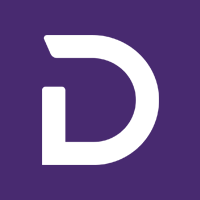
Dasera
Dasera is the data governance platform offering continuous policy enforcement, automated audits, and access to more data to inform decision-making. Monitoring for misconfigurations, cloud data stores, and change management across hybrid infrastructure, Dasera reduces manual workloads and ensures security while sharing data with necessary stakeholders.

Drata
Drata is a security and compliance automation platform that aids businesses in achieving and maintaining compliance with industry standards like SOC 2, HIPAA, and GDPR. It automates manual tasks like risk assessments, control testing, and evidence collection. The comprehensive platform covers a wide range of compliance standards, is easy to use, and can be scaled to meet the needs of businesses of all sizes.

Hyperproof
Hyperproof is a SaaS platform that automates compliance processes by removing human activities and incorporating machine learning. Founded by Craig Unger, it automates compliance processes, identifies redundant requirements across frameworks, and provides risk analytics. Hyperproof helps businesses manage compliance more efficiently through extensive integrations with cloud providers.

Strike Graph
Strike Graph is a cybersecurity compliance startup helping companies meet many security frameworks, including SOC 2, ISO 27001 and 27701, HIPAA, GDPR, CCPA, and PCI DSS. From certification readiness to dedicated Audit Success Managers, Strike Graph can help companies automate evidence collection, streamline security questionnaires, and challenge vulnerabilities through penetration testing.
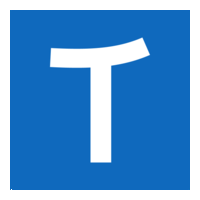
Thoropass
Thoropass, formerly known as Laika, is an emerging compliance technology company based in New York City. The company’s platform offers a range of tools and resources to help organizations identify and assess their compliance obligations, develop and implement compliance programs, automate compliance tasks, and monitor their compliance posture. Thoropass also provides expert guidance, gap assessments, and audit preparation.
Top Cyber Asset & Attack Surface Management Startups
Cyber asset and attack surface management startups identify, monitor, and secure an organization’s digital assets and potential vulnerabilities. They offer solutions that assist businesses in managing the security posture of their assets, assessing and mitigating risks across all attack surfaces. These companies provide solutions for asset inventory, vulnerability scanning, risk assessment, and proactive threat management. Here are some notable startups:
| Startup | Est. | Key Products & Features | Funding | Estimated Annual Revenue | No. of Staff | HQ | Round |
|---|---|---|---|---|---|---|---|
| Horizon3.ai | 2019 | NodeZero | $84M | $26.9M | 132 | San Francisco, CA | C |
| JupiterOne | 2018 | Asset Analysis Exposure Management | $49M | $18.1M | 125 | Morrisville, NC | C |
| Noetic Cyber | 2020 | Cyber Asset Attack Surface Management Threat and Vulnerability Management | $15M | $3.5M | 48 | Waltham, MA | A |
| Sevco Security | 2020 | Security Asset Inventory Exposure Management | N/A | $8M | 61 | Austin, TX | Unknown |
| spiderSilk | 2019 | Attack Surface Management and Threat Detection | N/A | $7.5M | 46 | Dubai, UAE | A |

Horizon3.ai
Horizon3.ai presents its solution, the NodeZero, as autonomous penetration testing-as-a-service (APTaaS) to identify an organization’s potential attack vectors. Whether on-premises, cloud, IoT, internal, or external attack surfaces, NodeZero can identify vulnerable controls, maximize security infrastructure, and leverage the latest threat intelligence.

JupiterOne
JupiterOne is a cyber asset management startup providing clients with a cloud-native solution for insights into relationships, governance and compliance, and empowering security engineering. JupiterOne helps aggregate cyber assets for central visibility and faster investigations with increasing complexity in security operations and assurance.

Noetic Cyber
Noetic Cyber offers a continuous cyber asset management and controls platform to give clients a comprehensive view of systems, policies, and the relationship between entities. Real-time visibility means organizations can identify and act on misconfigurations and coverage gaps and maximize existing infrastructure with a proactive remediation strategy.

Sevco Security
Sevco Security is a cloud-native cyber asset and attack surface management platform offering a real-time inventory of assets, multi-source correlation, and asset telemetry to support incident response workflows. With robust visualizations of network devices and traffic, Sevco’s agentless asset intelligence platform gives network administrators the visibility to identify and remediate coverage gaps.

spiderSilk
SpiderSilk offers an internet scanner that maps out a company’s assets and network attack surface to detect vulnerabilities. Over the years, SpiderSilk’s research has informed several high-profile breaches, and for clients, the vendor can simulate cyberattacks to ensure organizations take preventive measures before the real thing.
Top Remote Access Security Startups
Remote access security startups offer solutions for authenticating and securing users that utilize apps and IT systems remotely. They frequently integrate multi-factor authentication (MFA) for identity verification and single sign-on (SSO) for simplified access, which improves security and user experience. Below are the leading remote access security startups:
| Startup | Est. | Key Products & Features | Funding | Revenue | No. of Staff | HQ | Round |
|---|---|---|---|---|---|---|---|
| BastionZero | 2019 | Zero Trust Infrastructure Access Passwordless Authentication For Infrastructure | N/A | $1.4M | 18 | Boston, MA | Seed |
| Tailscale | 2019 | WireGuard-based VPN | $115M | $22.1M | 142 | Toronto, Ontario | B |
| Twingate | 2019 | Zero Trust Network Access Least Privilege AutomationInternet Security | N/A | $12.2M | 84 | Silicon Valley, CA | B |
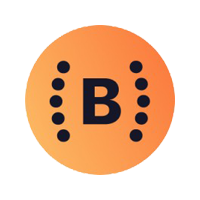
BastionZero
BastionZero is the infrastructure access-as-a-service company helping organizations configure, manage, and secure access controls to hybrid infrastructure targets. Engineers can authenticate and access all servers, containers, clusters, and databases through a central cloud console. Designed to remove the hassle of VPNs, BastionZero offers passwordless access, identity-aware logging, SSO, and MFA.

Tailscale
Building off the open-source WireGuard protocol, Tailscale is a VPN service that utilizes a peer-to-peer mesh network, or “tailnet,” and removes the central gateway server for network traffic. Tailscale allows companies to integrate existing SSO and MFA solutions, define role-based access controls for sensitive targets, and ensure network traffic meets compliance policies through log audits.

Twingate
Aiming to replace traditional VPNs, Twingate offers secure zero-trust network access (ZTNA) for computers, servers, and cloud instances. Twingate allows network administrators to map resources, approve users for resources, and connect to any device from anywhere. Easy to integrate into existing infrastructure, Twingate includes identity-indexed analytics, universal MFA, and built-in split tunneling.
Top DevOps & Application Security Startups
DevOps and AppSec startups combine development and security methods throughout the software development lifecycle. They prioritize application deployment efficiency while maintaining strong security measures to safeguard critical data and code from theft or modification. These startups aim to improve efficiency in operations and app security.
| Startup | Est. | Key Products & Features | Funding | Revenue | No. of Staff | HQ | Round |
|---|---|---|---|---|---|---|---|
| Evervault | 2017 | Evervault Encryption Secure Key Management | $19.4M | $2.3M | 23 | Dublin, Ireland | A |
| GitGuardian | 2018 | Secrets Detection GitGuardian CLI Honeytoken | N/A | $39.3M | 175 | Paris, France | B |
| Satori | 2019 | AI Security Data Access Control Data Classification & Discovery | $25.3M | $32.1M | 143 | Tel Aviv, Israel | A |
| Ubiq Security | 2019 | Secure DevOps and SDLC Quantum Readiness API Security | $6.4M | $3.6M | 25 | San Diego, CA | Seed |
| Wabbi | 2018 | Application Security Risk Index Secrets Management | $2.2M | N/A | 17 | Boston, MA | Seed |
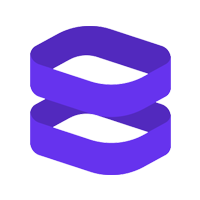
Evervault
Evervault is on a mission to make encrypting sensitive data seamless with its security toolkit for developers. The developer-friendly startup offers Relay to encrypt field-level data and codes to isolate and process code as needed. With robust encryption policies, Evervault can help reduce insurance premiums and offers PCI-DSS and HIPAA compliance automation.

GitGuardian
GitGuardian is a developer favorite offering a secrets detection solution that scans source code to detect certificates, passwords, API keys, encryption keys, and more. Ranked as the top-downloaded security app on GitHub, GitGuardian’s products include solutions for internal repository monitoring and public repository monitoring for prompt remediation.

Satori
Satori is a data access startup for monitoring, classifying, and controlling access to sensitive data. Satori’s platform creates a layer of protection and visibility between data users and data stores to guard against vulnerabilities in transferring sensitive data. Ultimately, Satori aims to provide data access control, visibility into usage and traffic, and compliance fulfillment.

Ubiq Security
Ubiq Security offers an API-based platform that integrates data encryption directly into application development. Without the need for experienced developers, encryption expertise, or excessive manual hours, Ubiq Security makes securing applications during the development process seamless, allowing personnel to focus on what’s most important.

Wabbi
Wabbi offers a continuous security platform for managing vulnerabilities, application security policies, and release infrastructure. As rapid software development is now the new standard, Wabbi aims to help organizations securely deliver software to clients and achieve continuous authority-to-operate (ATO).
Top Identity & Access Management Startups
Identity and access management (IAM) startups offer solutions to manage and protect access to applications, networks, and systems, both on-premises and in the cloud. They automate user identification and access control, lowering support inquiries and password resets while ensuring strong security and efficient user management. These are some of the fastest-growing IAM startups today:
| Startup | Est. | Key Products & Features | Funding | Revenue | No. of Staff | HQ | Round |
|---|---|---|---|---|---|---|---|
| Authomize | 2020 | Identity Threat Detection and Response (ITDR) Identity Security Posture Management (ISPM) | N/A | $2.4M | 24 | Tel Aviv, Israel | Acquired by Delinea |
| Cerby | 2020 | Privileged and Shared Platforms Protection Automated User Provisioning for Business-Owned IT | $33M | $21.4M | 105 | San Francisco, CA | A |
| Deduce | 2019 | Identity Graph | N/A | $2.6M | 26 | New York, NY | B |
| SafeBase | 2020 | SafeBase Trust Center Platform | N/A | $11.6M | 80 | San Francisco, CA | B |
| Securden | 2018 | Endpoint Privilege Manager Unified PAM | N/A | $11.9M | 82 | Delaware, OH | A |

Authomize
Authomize is the cloud identity and access security platform that maps all identities and assets across XaaS environments. Authomize continuously monitors security policies to identify exposed assets, entitlement escalation paths, and hidden and unmonitored permissions. It utilizes an AI-based engine to manage and automate remediation for clients’ authorization security lifecycle. Delinea acquired Authomize in early 2024.

Cerby
Cerby is on a mission to wrangle unmanageable applications, otherwise known as shadow IT — or the universe of apps employees use without permission from the IT department. Through application APIs and robotic process automation (RPA), Cerby helps automate access corresponding to managed identity platforms like Okta and Azure AD while monitoring for application misconfigurations that violate security policies.
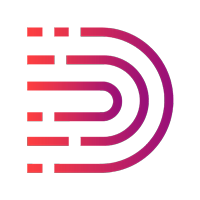
Deduce
Deduce is an identity-focused cybersecurity startup with two core solutions: Customer Alerts for protecting users and their data from account takeover and compromise, and Identity Insights for validating legitimate users and stopping fraud. Deduce offers actionable identity intelligence through event-level telemetry to act against abnormal user activity.

SafeBase
SafeBase is a trust-focused security platform streamlining the third-party risk management process between companies. Through the Smart Trust Center, companies can quickly share their private documents, compliance policies, risk profiles, and product security details. SafeBase’s features cover enterprise authentication, role-based access, security questionnaires, and auto-populated NDA templates.

Securden
Securden is a privileged access governance upstart offering companies password management, privilege management for endpoints and servers, secure remote access, and endpoint application control. Designed for least privilege and zero trust security architectures, Securden specializes in privilege management for Windows-centric organizations and data centers.
Investor Considerations for Cybersecurity Startups
Before investing in a startup, investors evaluate the growth of its product and business plan. Key considerations include the ability to scale, lean R&D techniques, a good business plan, a compliance mindset, and expertise in remote work. The quality of employees and leadership is also critical to a startup’s success and development potential.
Potential To Scale & Lean R&D
Scalability will always be one of the most critical factors for investing in a successful startup. When there are growth opportunities, startups should and usually do capitalize on them. Investors are also looking for startups that can continue improving their products without requiring substantial capital investment. Lean research and development (R&D) shows efficiency, even with limited resources.
A Solid Business Plan
Another factor investors have always looked for is an air-tight business plan. They want assurance that there is a marketable problem that the product solves. Investors also want to see financial reports and revenue growth projections backed up by market analysis.
Compliance Mindset
Regulatory compliance, such as HIPAA, GDPR, and CCPA, is essential for organizations collecting and protecting user information, including virtually all enterprise-level companies. Investors will be looking for startups that can ensure customers will maintain compliance.
Remote Work Experts
Remote work is and will continue to be, for the foreseeable future, a top-of-mind factor for venture capitalists. Startups that can immediately impact the remote worker ecosystem will garner much attention. Specifically, startups with SaaS (software-as-a-service), those that provide automation, and products that include endpoint protection will fall into this category.
Methodology
Our list of top cybersecurity startups focused on companies that were founded five years ago and are in the early stages of funding. We value independent startups that provide innovative cybersecurity solutions and have credible, scalable business models. Our selection approach includes market observations and data from platforms like Growjo and Crunchbase.
Here are our important considerations in building our overall list:
- Company age: Focuses on firms that are five years old or younger, occasionally in the early stages of fundraising for new innovation.
- Investor interest: Includes older firms that have rekindled investor interest, demonstrating their continued relevance and potential in the cybersecurity market.
- Innovation: Prioritizes startups that provide new cybersecurity solutions to existing and emerging security concerns.
- Scalability: Highlights companies with credible business models that show clear potential for growth and market expansion.
- Growth and traction: Features key markers of success include substantial growth, market traction, and high investor confidence.
Frequently Asked Questions (FAQs)
What Are the Funding Series A, B & C?
Series A, B, and C funding refers to the stages which present investment opportunities in exchange for equity. To create scalable business models, Series A raises between $2 and $15 million. The main objective of Series B is to expand market reach. Series C facilitates growth by means of new goods or acquisitions. Every round shows how the company has matured. Corporate rounds entail firms making strategic investments, typically to form partnerships.
Which Type of Cybersecurity Is In-Demand?
Given the rise in remote work, endpoint security — including both classic endpoint detection and response (EDR) and its more advanced version, XDR — remains in high demand. Products that safeguard devices across a remote ecosystem, such as EPP and EDR, also remain indispensable. There’s also a great demand right now for the following solutions:
- Application security
- Cloud security
- Attack surface management
- Cyber asset management
- Identity and access management
- Governance, risk, and compliance
- Threat detection (EDR, XDR)
- Digital forensics and incident response
- Risk scoring and assessments
- Software development lifecycle (SDLC)
- Endpoint security and protection against ransomware
Is Cybersecurity Going to be Replaced by AI?
Instead of replacing current cybersecurity solutions, AI tools aim to enhance them. AI is being incorporated into cybersecurity systems progressively to improve automation and administration. It assists by increasing the effectiveness of threat identification and response. Nonetheless, responsible AI use should supplement, not replace, human judgment and traditional cybersecurity approaches.
Bottom Line: Explore Today’s Leading Cybersecurity Startups
Despite economic headwinds and a decline in venture capital between 2020 and 2023, funding for firms offering cybersecurity solutions is now on the rise. This shift is indicative of a growing trust in startups to take on critical cybersecurity challenges. Cybersecurity companies play a pivotal role in creating cutting-edge tools and solutions to mitigate network threats, thereby augmenting your defenses and resilience.
Discover the common network security threats to see how they can be mitigated by the emerging cybersecurity startups and their tools.
Kaye Timonera and Paul Shread contributed to this article.



